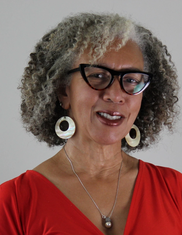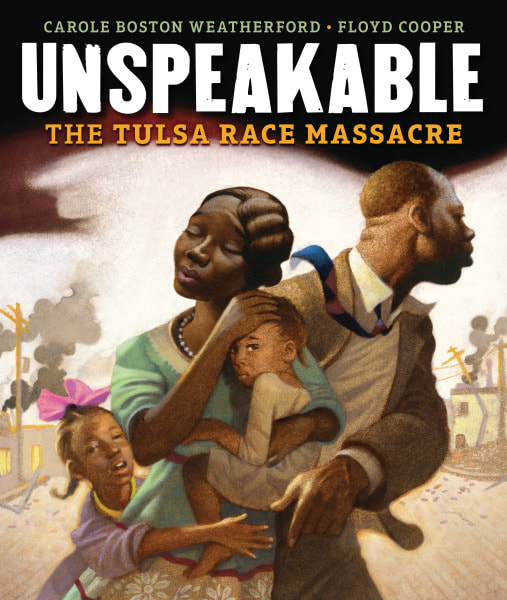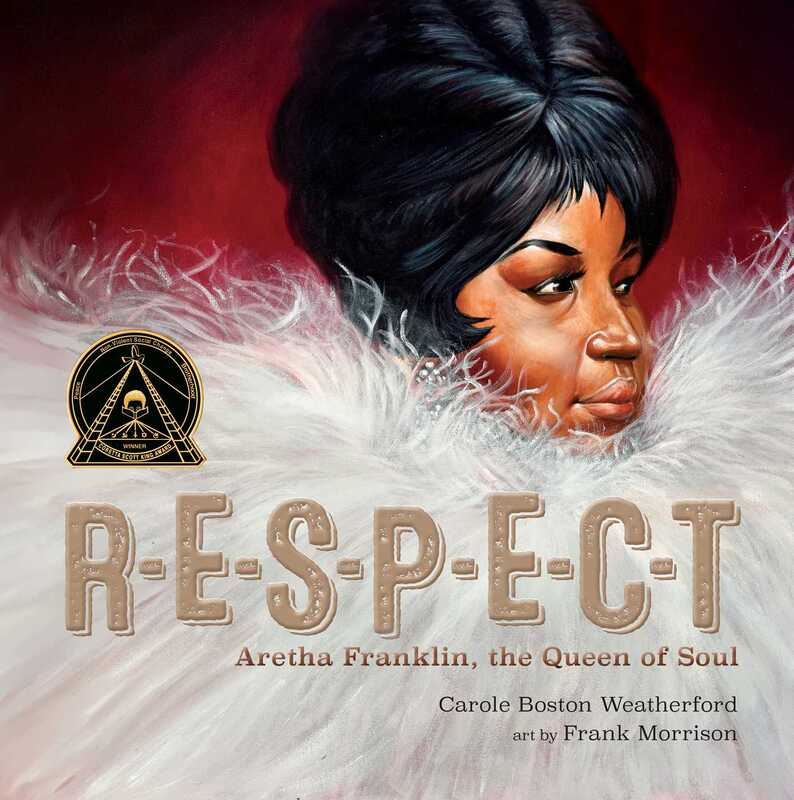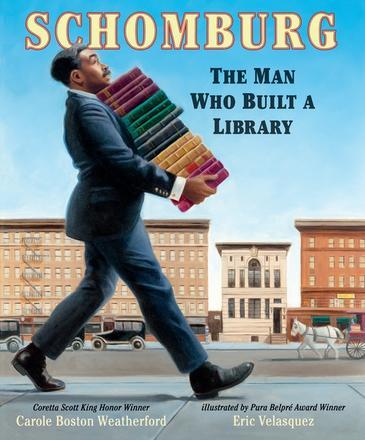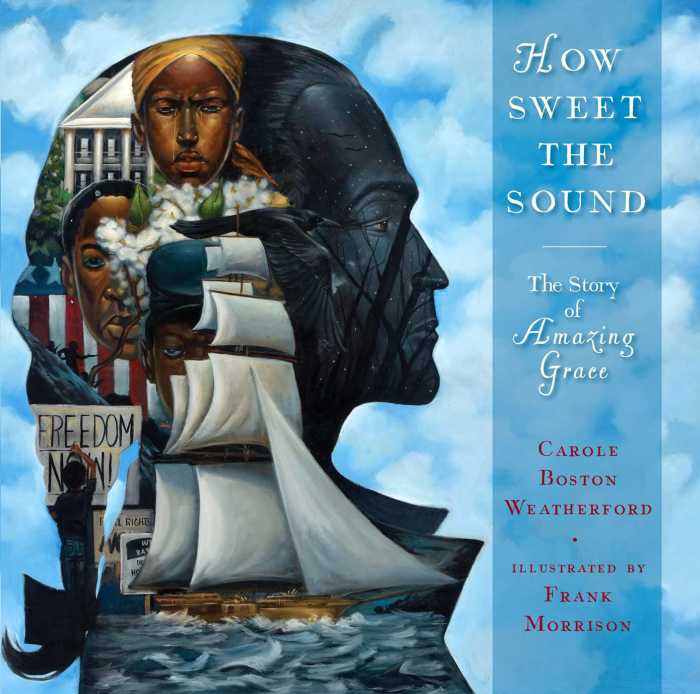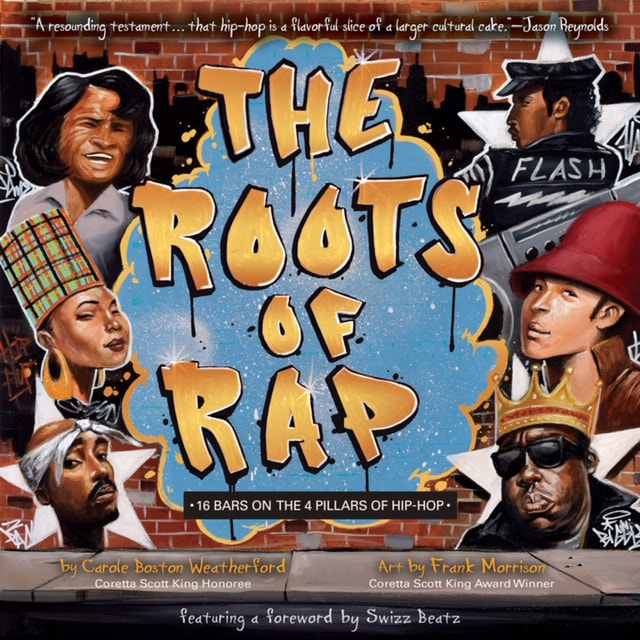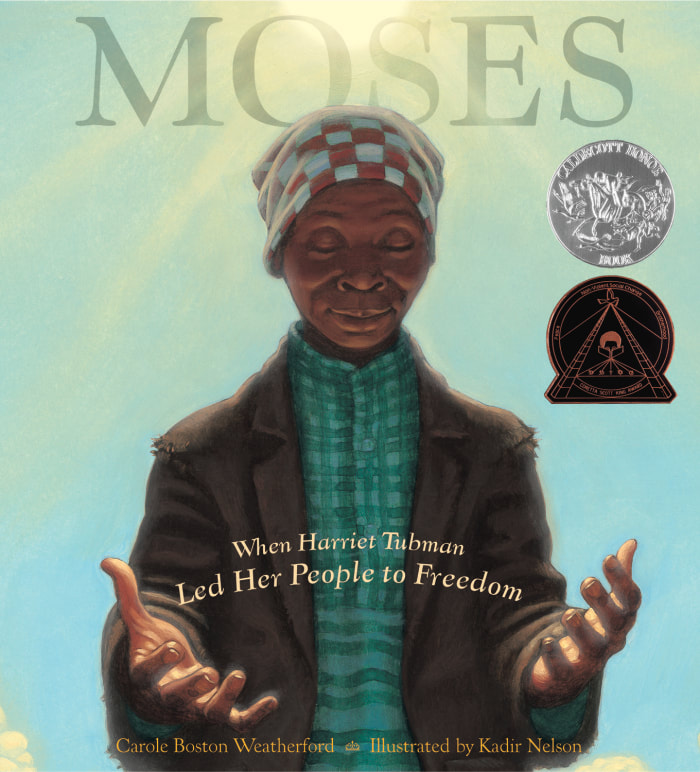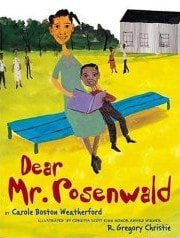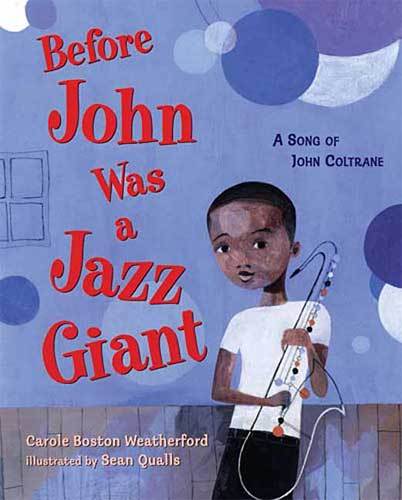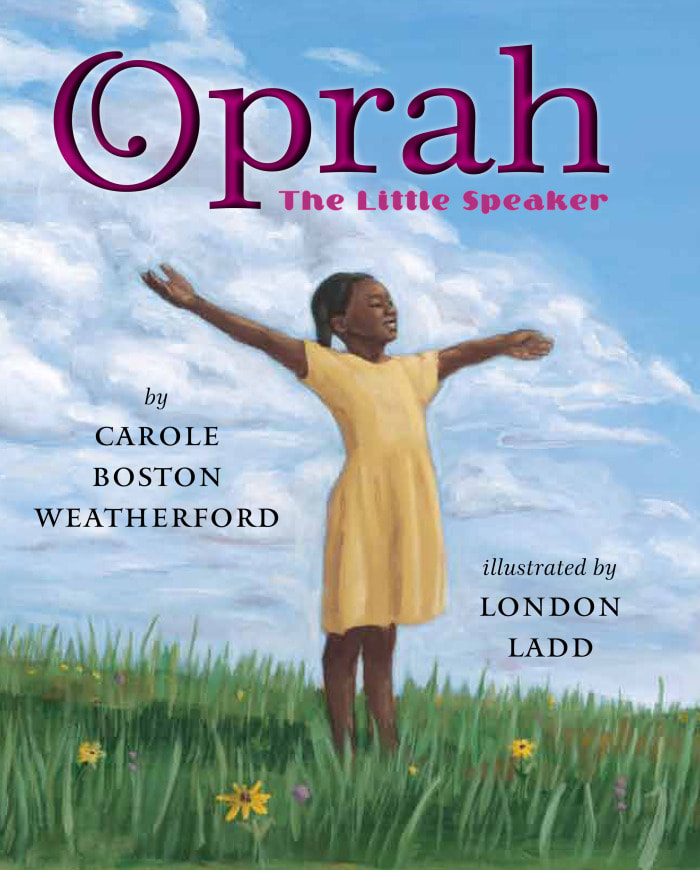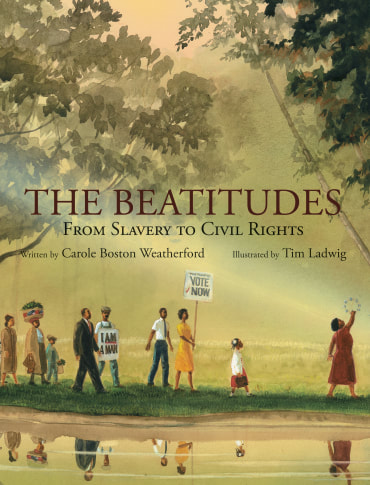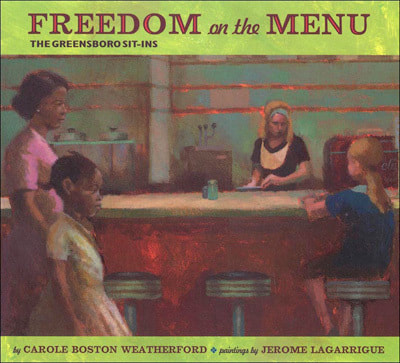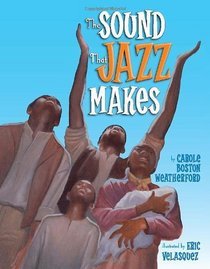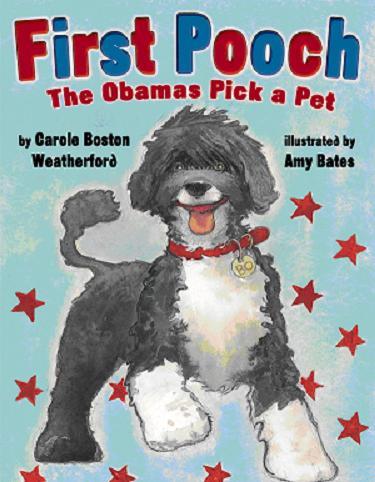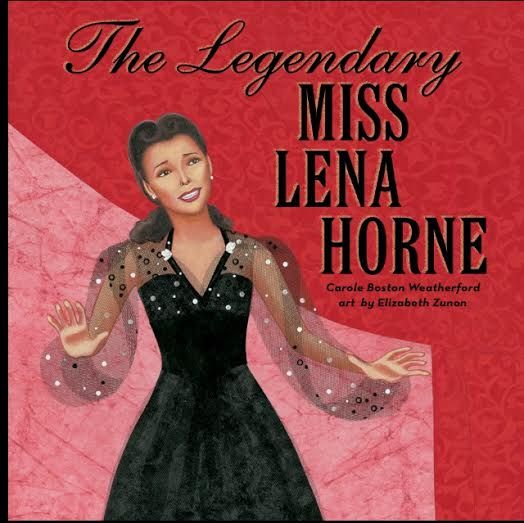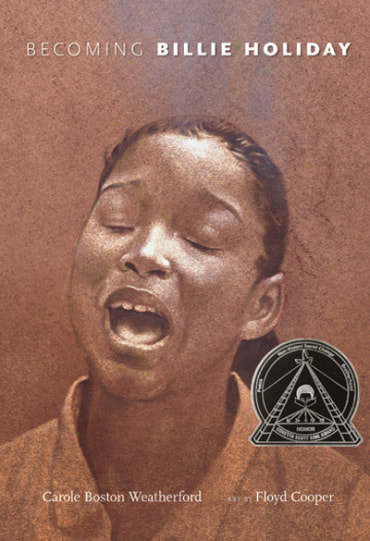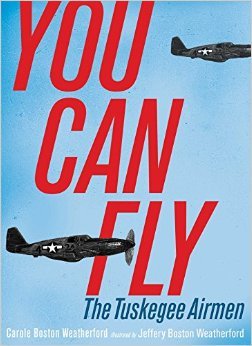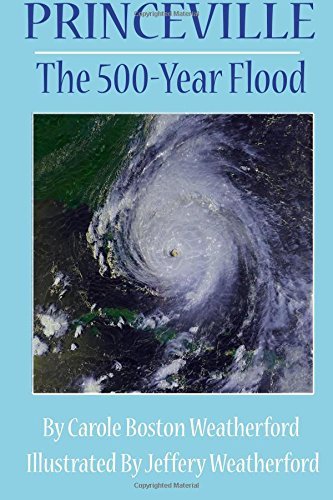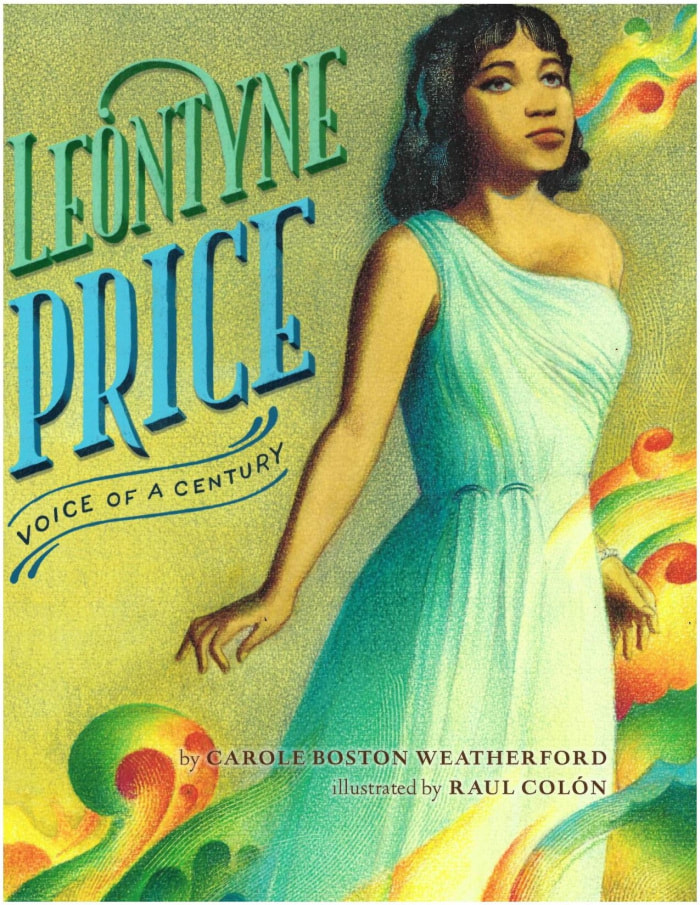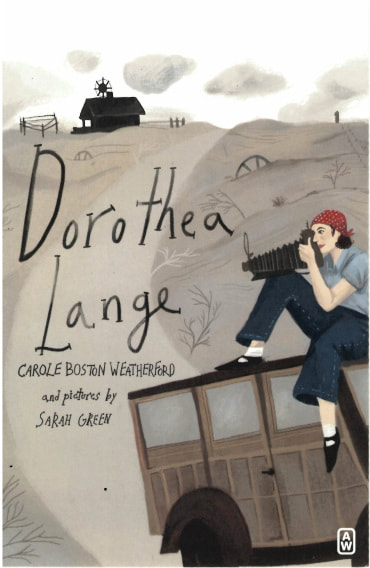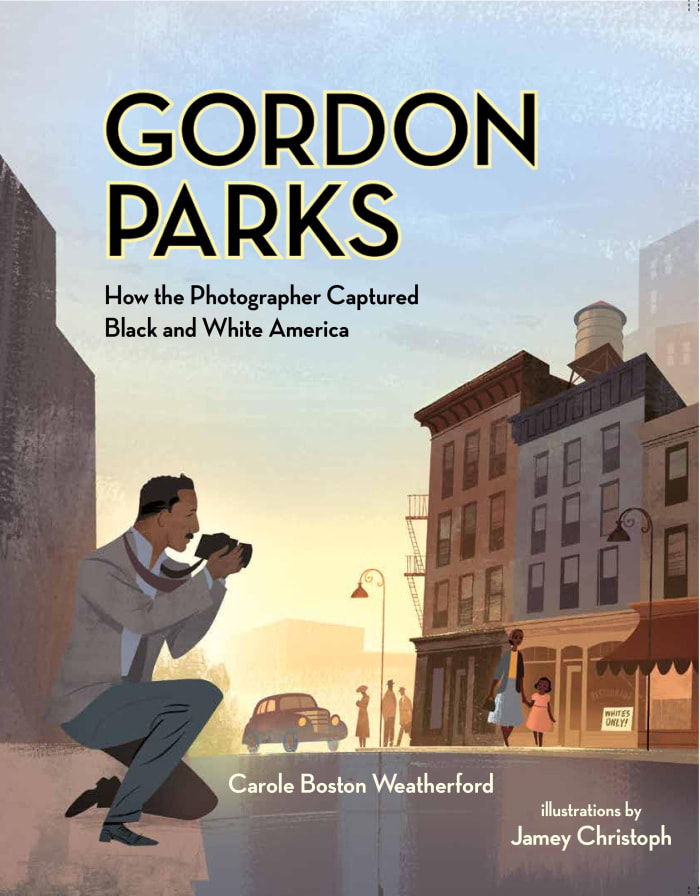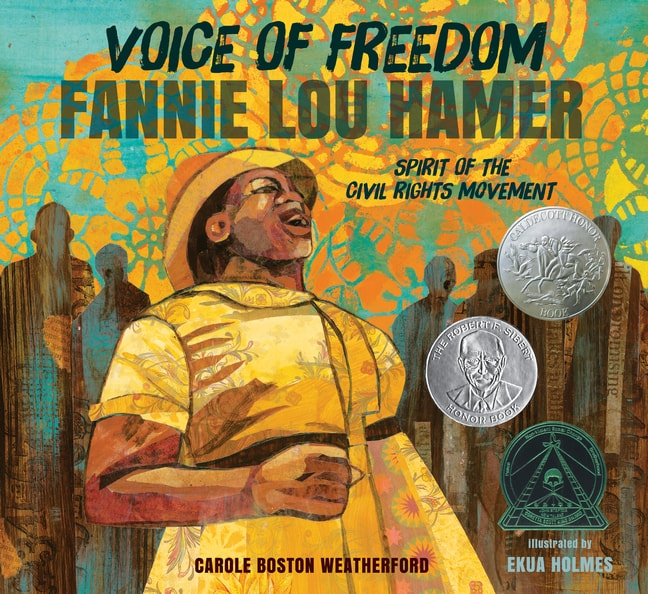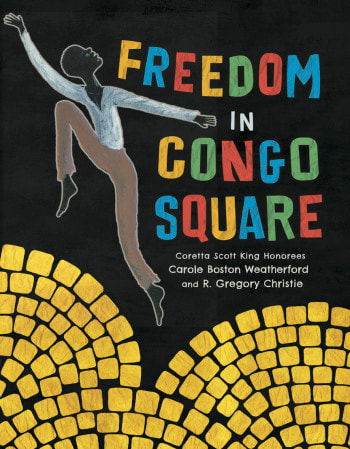Carole Boston Weatherford
|
Prolific, award-winning author Carole Boston Weatherford centers her books for children and young adults on significant African Americans in the United States, as well as African Americans’ cultural and historical contributions and experiences. Whether writing poetry, biographies in verse, historical fiction, or nonfiction, Weatherford “mines the past for family stories, fading traditions, and forgotten struggles''(Weatherford, March 4, 2021 interview transcript, p. 11) and often focuses on “resistance, resilience, and respect” (@caroleweatherford).
|
Her most recent picturebook biographies in verse are the 2021 Newbery Honor, BOX (2020), illustrated by Michele Wood, and the 2021 Coretta Scott King Illustrator Honor, R-E-S-P-E-C-T: Aretha Franklin, the Queen of Soul (2020), illustrated by Frank Morrison. These two picturebook biographies follow a legacy of award-winning biographies, such as Moses: When Harriet Tubman Led Her People to Freedom (2006), illustrated by Kadir Nelson, Becoming Billie Holiday (2008), illustrated by Floyd Cooper, Schomburg: The Man Who Built A Library (2015), illustrated by Eric Velasquez, and Gordon Parks: How the Photographer Captured Black and White America (2015), illustrated by Jamey Christoph. Other critically acclaimed or award-winning nonfiction picturebooks include Unspeakable: The Tulsa Race Massacre (2021), illustrated by Floyd Cooper and Freedom in Congo Square (2016), illustrated by R. Gregory Christie, among many others.
Carole is currently a Professor of English at Fayetteville State University, where she works with current and future teachers as well as aspiring writers. To find out more about Carole, access teaching guides and videos, and get to know her and her son, Jeffery, a poet, illustrator and co-creator of You Can Fly: The Tuskegee Airmen (2016), visit cbweatherford.com.
Carole is currently a Professor of English at Fayetteville State University, where she works with current and future teachers as well as aspiring writers. To find out more about Carole, access teaching guides and videos, and get to know her and her son, Jeffery, a poet, illustrator and co-creator of You Can Fly: The Tuskegee Airmen (2016), visit cbweatherford.com.
Carole's Process & Artifacts
|
|
Our interview with Carole Boston Weatherford includes discussions about her connections with the significant people about whom she writes, her research and writing processes, and her intentional craftsmanship of narrative voice. Interspersed throughout the interview are stories that further personalize Carole’s artistic process as a poet, biographer, storyteller, and activist. As with many conversations, we often move back and forth between topics. Throughout our conversation, Carole focused on the following topics related to researching and writing biographies, particularly Voice of Freedom.
|
- Her inspiration for writing Voice of Freedom
- The connections between Voice of Freedom and her 2010 book, The Beatitudes [2:00-4:45];
- The need to preserve Fannie Lou Hamer’s legacy [4:52-7:00]
- Her spiritual connection to Fannie Lou Hamer [46:41-47:12], & [52:43-54:32]
- The intersections of her writing and research processes involving primary and secondary multimedia sources [7:50-13:07], [44:05-47:12], & [51:55-52:43]
- The challenge of finding sources [36:20] & [44:07].
- The art and science of writing biographies
- Deciding when to use 1st person or 3rd person point of view [19:55]
- Crafting authentic voice and expression [13:07-19:05]
- Channeling voices from the past [44:50-51:54] & [52:43-54:31]
- Writing hybrid genre books [23:25-27:00]
- Conveying “emotional weight” and “factual burdens” via poetic style [32:56-35:55]
- Her reasons for including specific experiences and events in Voice of Freedom [27:58-32:55]
- The surprising discovery of Fannie Lou Hamer’s visit to Guinea and importance of that trip [40:14-44:05]
- The necessity of connecting the past to the present [55:20-61:45]
The artifacts shared below reflect the primary resources Carole used when researching Fannie Lou Hamer.

